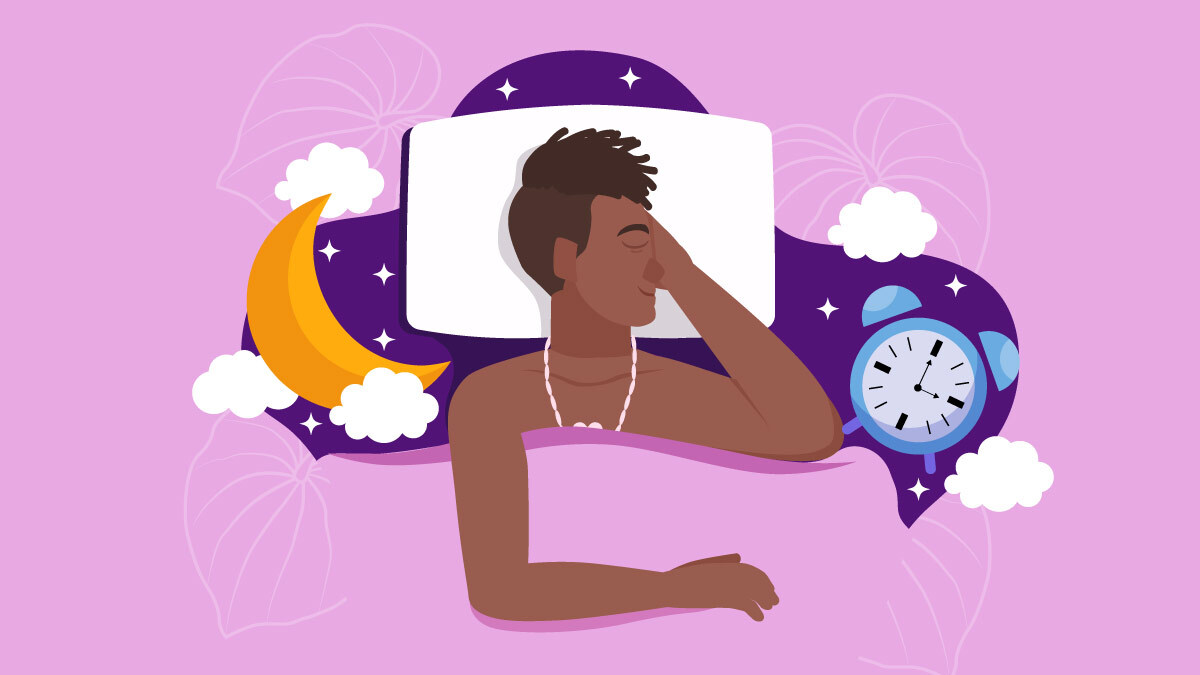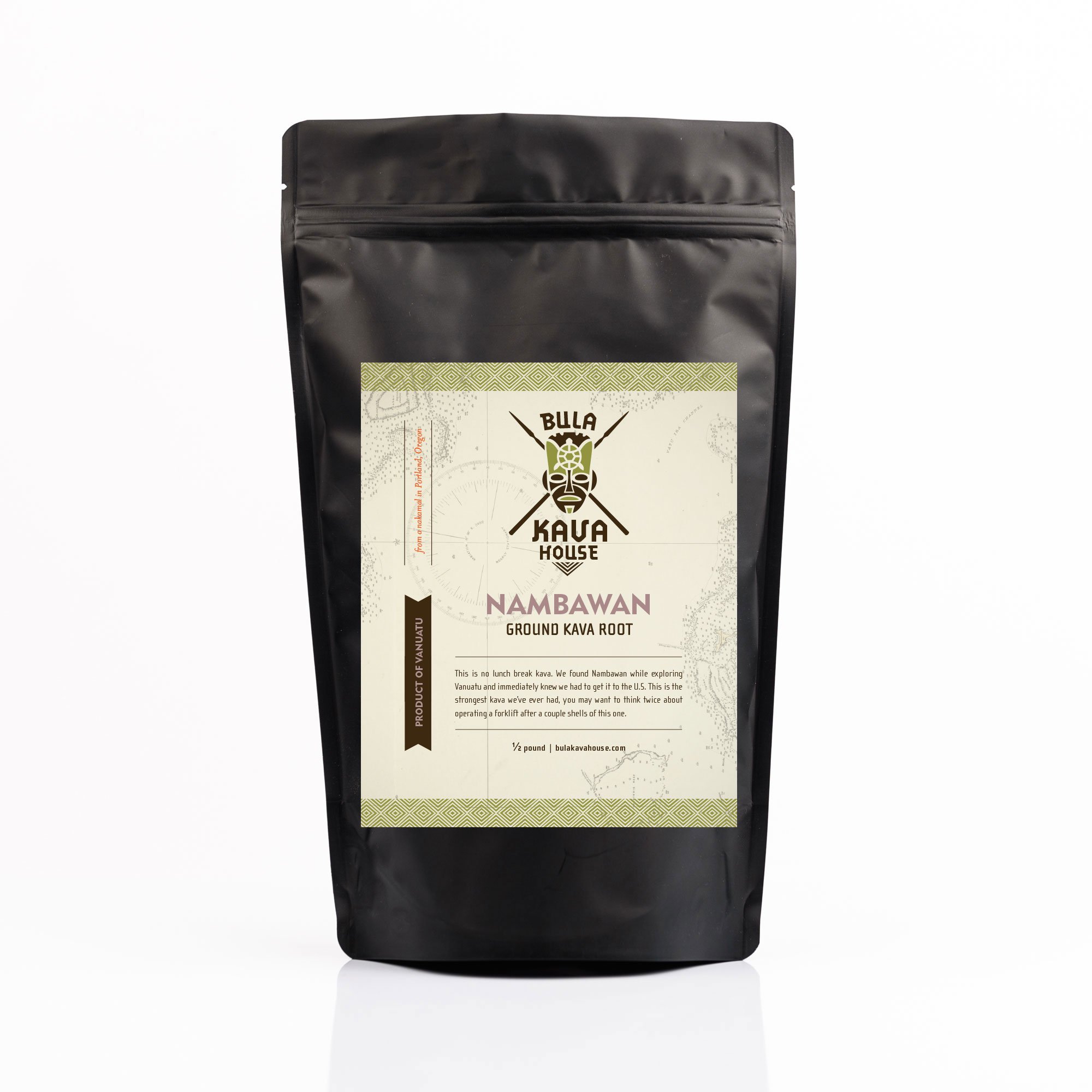One of the most popular reasons people take kava supplements or drink kava tea is to help with sleep — and for a good reason.
Kava relaxes the muscles, calms the mind, allowing us to reach deeper restorative stages of sleep longer.
Sleeping problems are widespread in the modern world — with some reports suggesting as many as a third of the general population suffers from some form of insomnia.
Insomnia has a substantial negative impact on our health — both in the short-term and long term.
The most common treatment options we have available for treating insomnia are benzodiazepines, which have a long list of adverse side effects and are considered highly addictive. One of the worst side-effects of these medications is rebound insomnia — which can develop into something far worse than the initial insomnia symptoms.
The addictive nature and negative side-effects from prescription medications have many people around the world opting for effective alternatives such as kava.
In this article, we’ll cover the three types of insomnia, and what the research says about the effects of kava on each one. We’ll also cover some techniques you can combine with your kava supplementation to get the most out of it.
This is a big topic, so feel free to jump ahead to the parts that relate to you the most.
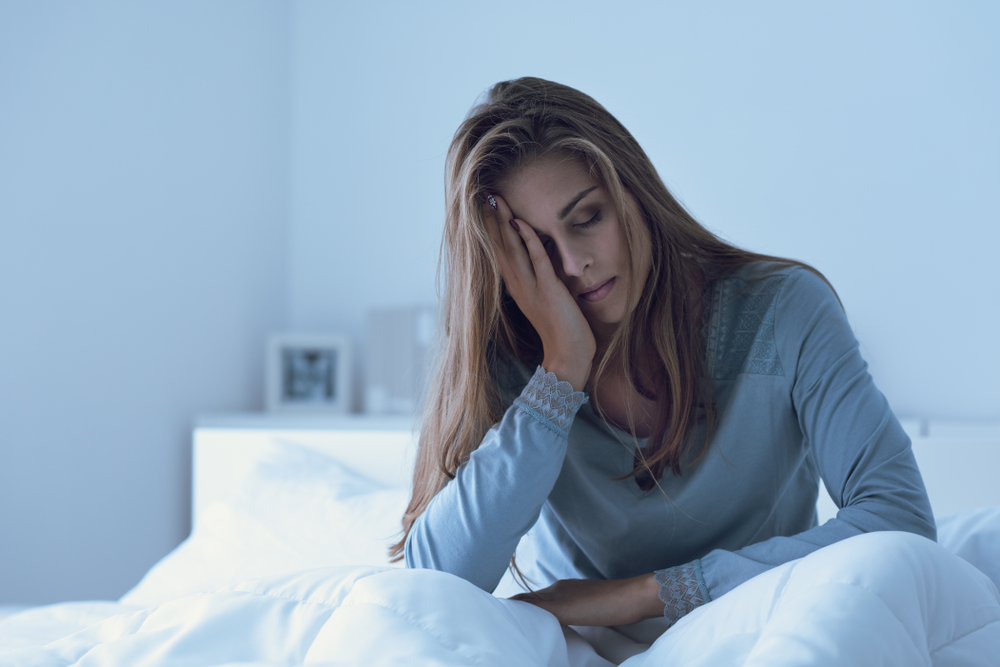
Table of Contents [hide]
Best Kava For Sleep & Insomnia
Not all kava is going to be effective for sleep — here are three products to check out if your main goal is to achieve a deeper, more restorative sleep with kava.
1. Gold Bee — Micronized Kava Powder
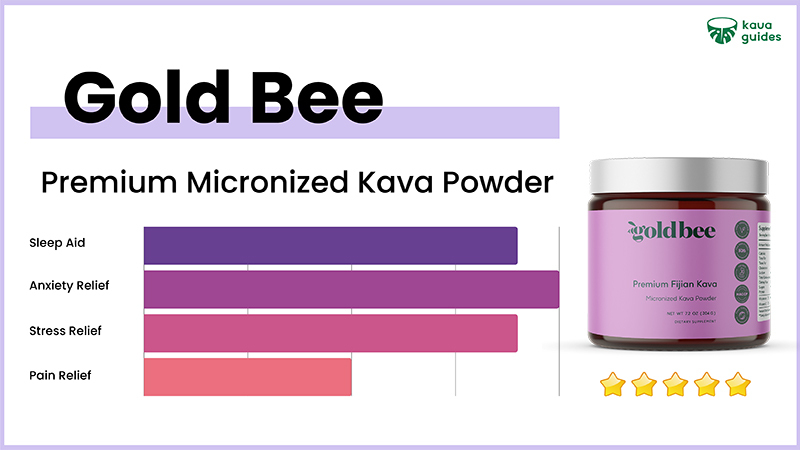
I consider this to be the best instant kava for sleep. It’s a micronized kava from a well-known brand (Gold Bee). It’s a reliable strain of Fijian kava that can be used for helping you get to sleep in higher doses, or for socializing and reducing anxiety with smaller doses.
This micronized instant kava is surprisingly affordable for the level of potency this stuff packs. Just keep in mind, you’ll need to aim for the higher end of the dosage spectrum to get the sleep-supportive benefits of any kava. If you normally take 2 scoops of instant kava, take 3 or 4 instead.
You should also give yourself about an hour for the kava to take effect and transition from the early euphoric qualities to the relaxing and sleep-supportive effects instead.
2. Root of Happiness — Solomon Island Kava Powder
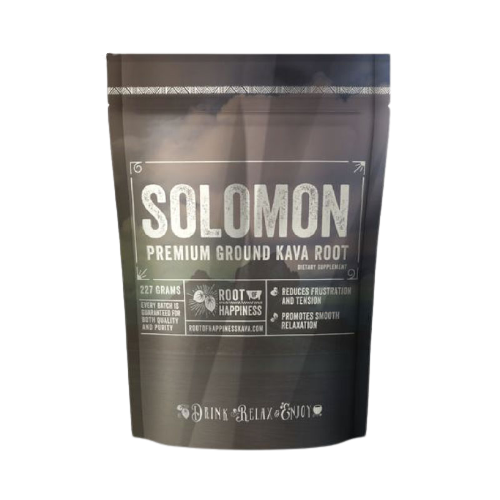
This is my go-to kava strain for supporting sleep. It’s very strong, yet doesn’t leave you feeling groggy the next morning like a lot of other kava options. This particular strain of kava is only found on the Solomon Islands — but beware, there have been a lot of companies selling similar Solomon island strains that have been confirmed to be Tudei varieties. I highly recommend you avoid these strains as much as possible.
Stick to a solid name-brand supplier of kava products like Root of Happiness when shopping for this formidable knockout class kava from the Solomon Islands.
3. Bula House — Nambawan Kava
This is one of the strongest Vanuatu kavas available. Seriously. You only need a little bit of this stuff to push back into your seat and mellow out for the rest of the evening. A few extra shells and you’ll be out for the night.
One of the main complaints about this kava is that it works too well — often making you sleep well into the following morning. However, this is easily avoided by avoiding overindulging in this kava. Just prepare the normal dose of this stuff and give it about an hour or two to put you to bed.
What is Kava?
Kava is the common name for an herb originating from the South Pacific (Piper methysticum).
After its discovery, kava quickly became a popular ceremonial and social beverage for its ability to induce a carefree and euphoric sensation in higher doses. Those who used kava for spiritual practice believe kava connected them to the spirit world. Over time, the use of the plant developed into more of a casual practice.
Today, interest in kava is spreading around the world as people learn about its powerful relaxing abilities. You can find kava online and in local health food shops as an alternative supplement for anxiety, stress, sleep, and muscle tension.
There Are Three Types of Insomnia
Insomnia affects as many as 30% of the population.
There’s an obvious problem here when you consider how vital sleep is for our overall health and wellbeing. Sleep deprivation can lead to poor decision-making, lowered resistance to stress, emotional instability, depression, and cardiovascular disease.
Any inability to fall asleep or stay asleep is referred to as insomnia — but not all insomnia is the same.
There are actually three main forms of insomnia:
- Sleep onset insomnia (you can’t fall asleep)
- Sleep maintenance insomnia (you keep waking up in the night)
- Unrefreshing sleep (you technically slept all night but still feel tired in the morning)
Kava has slightly different effects on all three, so let’s cover each one in detail, along with the effects of kava, and some tips you can employ to improve different forms of insomnia.
Summary of the Effects of Kava on Different Forms of Insomnia:
| Type of Insomnia | Effects of Kava |
| Difficulty Falling Asleep (Sleep-Onset Insomnia) |
• May relieve anxiety-related insomnia • Practicing a kava tea routine can help wind down for sleep • Slows racing thoughts before bed • Supports the sleep-wake cycle, making it easier to fall asleep at night over time |
| Difficulty Staying Asleep (Sleep Maintenance Insomnia) |
• May alleviate chronic pain affecting sleep • Helps regulate the circadian rhythm to stay asleep all night |
| Unrefreshing Sleep | • Support circadian rhythm • Promotes delta-wave deep non-REM sleep |
1. Sleep-Onset Insomnia
Sleep onset insomnia refers to the type of insomnia where you can’t fall asleep.
People with this type of insomnia will often experience racing thoughts, anxiety, or bouts of creativity as they’re trying to fall asleep. You may be worrying about a project that’s due, a public speaking event, or thinking about other stresses such as finances or relationship troubles.
Sleep-onset insomnia doesn’t always mean worrying — many people find their mind is just hyperactive when they’re trying to sleep.
The bottom line here is that with this form of insomnia, you can’t seem to shut your brain down enough to sleep.
What Causes Sleep-Onset Insomnia?
This type of insomnia is usually caused by hyperstimulation in the brain — typically due to elevated levels of cortisol (the stress hormone) when trying to fall asleep.
Cortisol is a hormone produced by the adrenal glands that activate our sympathetic nervous system (fight or flight). It’s especially active while we’re stressed out but will also become elevated naturally during the first half of the day to keep us awake and alert.
Cortisol triggers the release of other neurotransmitters in the brain, including epinephrine, dopamine, glutamate, and orexin — all of which lead to stimulation and a feeling of wakefulness and energy.
If cortisol levels remain high in the evening, we will have a hard time getting to sleep.
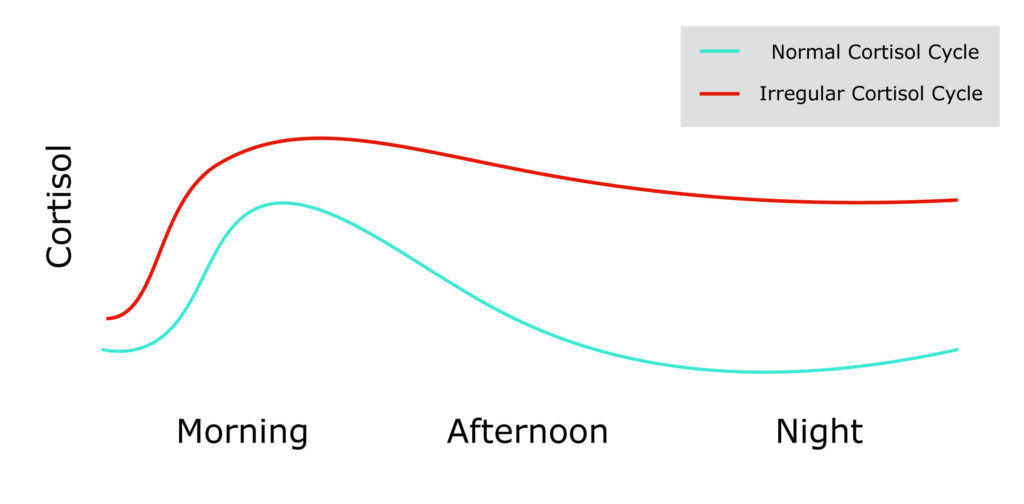
Cortisol can be elevated in the evening for a few different reasons:
- Dysfunctional circadian rhythm or jet lag
- Melatonin deficiencies
- Nutritional deficiencies
- High levels of stress
- Too much stimulation before bed (such as staring at a computer or phone screen)
- Side-effects from medications
Can Kava Help Me Fall Asleep?
A clinical trial published by the University of Erlangen-Nuremberg highlighted some of the effects of a standardized kava extract (WS 1490®) on anxiety-related insomnia. Researchers concluded that kava was an effective and safe treatment for sleep disturbances associated with anxiety disorders [1].
Anxiety is a clinical form of hyperstimulation. It draws many parallels to other forms of hyperactivity in the brain prior to bed. Anxiety is characterized by both elevated cortisol levels [2], as well as excessive glutamate activity [3].
The most important effect kava offers sleep-onset insomnia is its ability to increase the activity of GABA — which acts as the brake pedal for the brain, slowing down electrical activity enough to let you drift off to sleep. This effect directly opposes the stimulating effects of glutamate and cortisol.
Kava uses the same mechanism as sleep medications such as benzodiazepines to treat anxiety and allow the brain an opportunity to slow down enough to fall asleep.
Other Tips To Improve Sleep-Onset Insomnia
- Eat a meal that includes complex carbohydrates about 2 hours before bed (helps with the formation of melatonin)
- Exercise during the day (but not too close to bedtime)
- Meditate before bed
- Follow a regular sleep schedule, going to bed and waking up at the same time every day
- Avoid computer, television, or phone screens at least an hour before bedtime
- Avoid caffeine at least 6 hours before bedtime
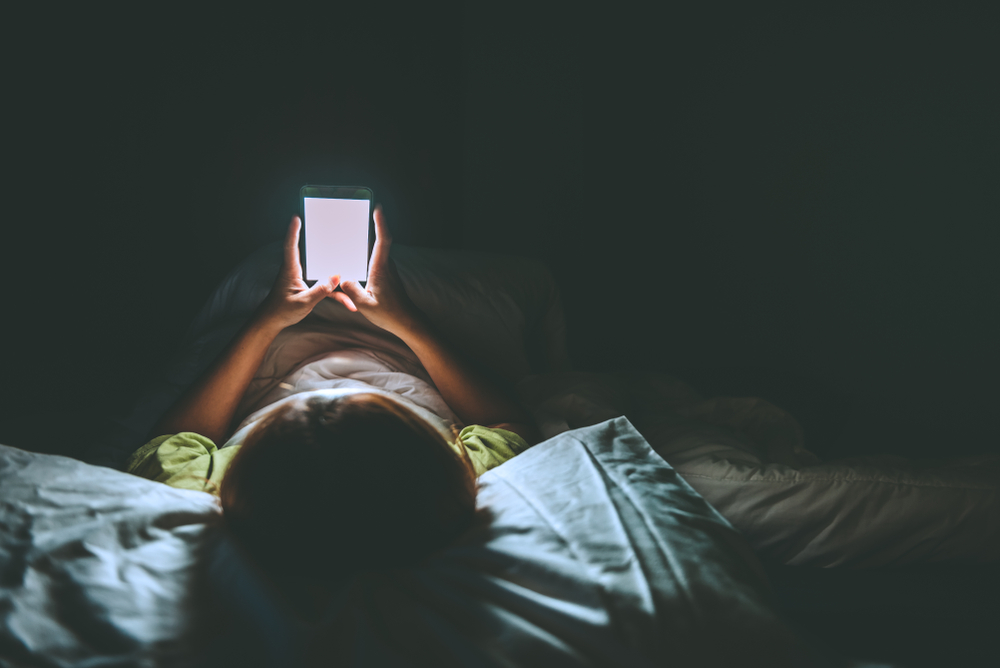
2. Sleep Maintenance Insomnia
The second form of insomnia is when you wake up in the middle of the night. Some people wake up many times during the night, while others wake up in the early hours of the morning and can’t fall back asleep.
This form of insomnia is the inability to maintain sleep — sleep maintenance insomniacs often wake up throughout the night.
What Causes Sleep Maintenance Insomnia & Can Kava Help?
Sleep maintenance insomnia can be complex and there are many potential causes for these effects — some of which may stand to benefit from kava use.
Common causes of sleep-maintenance insomnia include:
A) Low Blood Sugar (Hypoglycemia)
If you think blood sugar control may be a problem for you, visit your doctor to have your fasting blood sugar levels assessed.
Sleeping forces us into a fasted state — going several hours without food. If blood sugar drops too low during this time, it can cause us to wake up in a panic — usually along with strong hunger cravings.
Kava offers little benefit for this cause of insomnia.
B) Dysfunctional Circadian Rhythm
The circadian rhythm (a 24-hour internal clock that regulates when we should feel tired or awake) is critically important for regulating sleep. Changes to this rhythm can make it hard to fall asleep (as mentioned in the sleep-onset insomnia section), but can also make it difficult to stay asleep.
Cortisol levels are meant to rise in the early morning and gradually taper off throughout the day. If this cycle is disturbed, it can lead to a spike in cortisol way too early in the morning, causing us to wake up in the night and find it hard to fall back asleep.
This will also result in feelings of excessive tiredness throughout the day, especially in the first part of the morning.
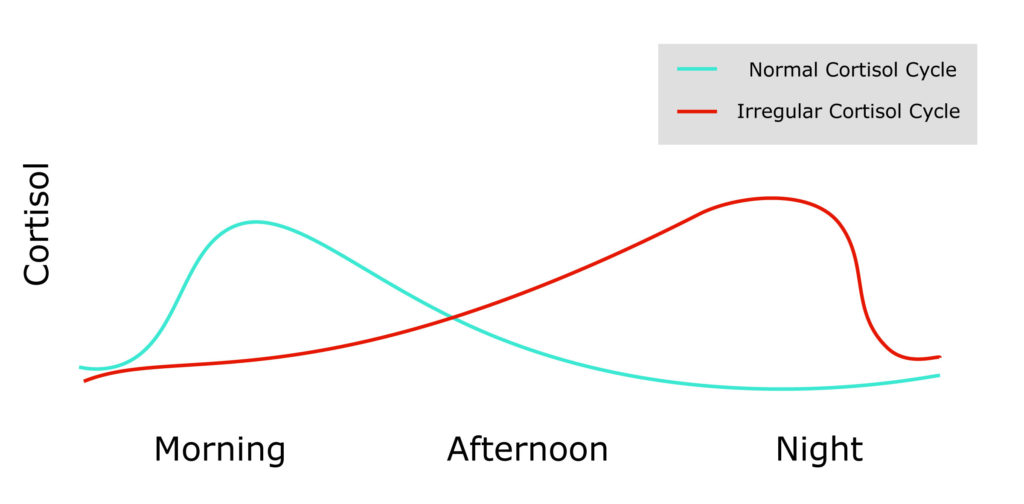
This is a common side-effect of jet lag — which forces the circadian rhythm out of sync with local time.
Kava may have plenty to offer this form of insomnia by conditioning the sleep cycle. This is especially useful if we take kava at the same time every day. This routine conditions the brain to initiate the process for sleep, forming a stronger sleeping pattern and re-establishing optimal cortisol and sleep cycles.
C) Sleep Apnea
Sleep apnea is a condition where someone repeatedly stops and starts breathing throughout the night. If we stop breathing for too long, protective mechanisms in the brain will force us to wake up to make sure we take another breath. This can cause us to wake up many times throughout the night, making it difficult to get a good restorative sleep.
Sleep apnea can be very serious, so it’s important to talk to your doctor if you think you may have sleep apnea.
There’s no evidence that kava can benefit sleep apnea directly.
D) Chronic Pain
Pain can also cause us to wake up in the middle of the night. According to the Cleveland Clinic, up to 66% of people suffering from chronic pain experience sleeping disorders.
Kava may offer benefits to chronic pain through its analgesic effects.
Research has shown kavalactones including kavain, dihydrokavain, methysticin, and dihydromethysticin all possess potent pain-relieving effects in mice [4]. The mechanism for this effect remains unknown and doesn’t appear to involve activation of the opiate receptors — one of the most common mechanisms for pain-killer medications.
This means kava’s pain-killing benefits are different from addictive opiate-based painkillers such as morphine or oxycontin.
Other studies have backed up this research but failed to offer an alternative theory for how kavalactones offer pain relief [5]. More research is needed to understand exactly how this works.
Other Tips to Improve Sleep Maintenance Insomnia
- Eat a meal containing complex carbohydrates and protein about 2 hours before going to sleep
- Follow a regular sleep pattern, going to sleep at the same time every day
- Visit a doctor to assess fasting blood sugar levels
- Take melatonin before bed
- Address underlying causes of pain
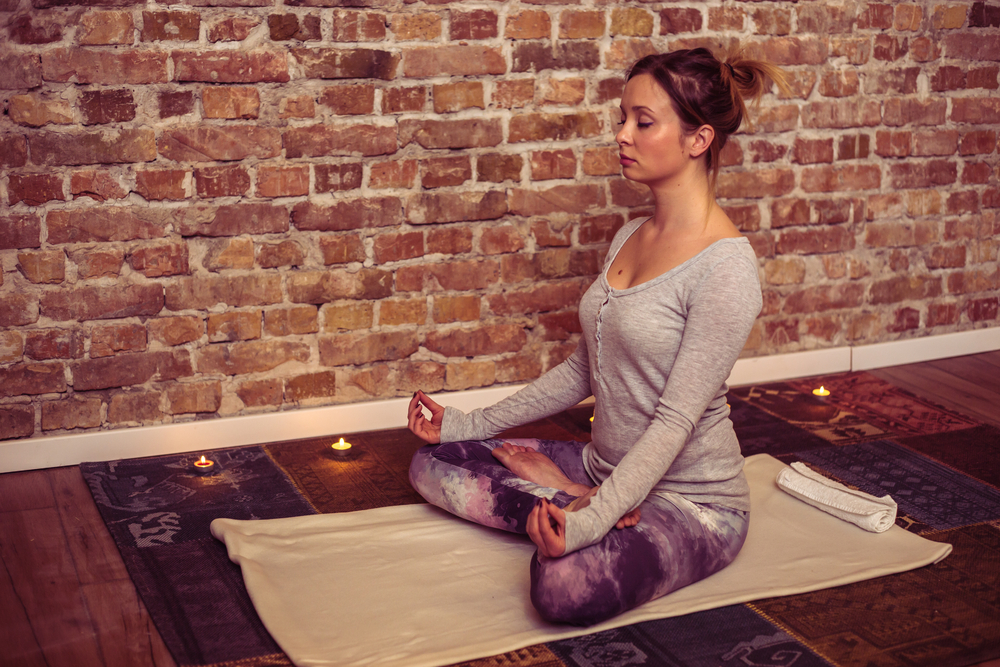
3. Unrefreshing Sleep
Not many people correlate waking up tired with insomnia — but there are many similarities between other forms of insomnia and waking unrefreshed.
When we wake up tired, it’s an indicator that something is interfering with our ability to enter deep sleep during the night. We’re asleep, but we aren’t getting into the deep restorative level sleep long enough to achieve adequate rest.
Sleep quality can be measured with a machine called an electroencephalogram (EEG). This machine measures electrical activity in the brain in the form of wavelength (brainwaves).
There are 5 different types of brainwaves, each indicating varying levels of brain activity:
- Gamma brain waves — These are the highest brain waves. Associated with meditation and expanded consciousness. Most people don’t have the ability to induce these brain states on their own.
- Beta brain waves — This is the dominant form of brain activity while we’re awake.
- Alpha brain waves — these brain waves are associated with focus, concentration, relaxation, and meditation.
- Theta waves — These wavelengths are found in people in the early stages of sleep and deep meditation. This is the activity often found during dream states. People who experience unrefreshing sleep often spend more time with this brain activity.
- Delta brain waves — Delta waves are very slow, low-frequency brain waves that are associated with deep, restorative sleep.
Ideally, we can spend most of our time with delta brain activity where most of the restorative sleep happens. Preliminary research suggests that kava may be able to increase delta wave activity while we sleep — more on this effect later.
What Causes Unrefreshing Sleep?
Waking up unrefreshed could be a byproduct of other forms of insomnia, but it can also present without any knowledge of waking in the night.
Unrefreshing sleep can be caused by many of the culprits for other forms of insomnia. Low blood sugar, cortisol spikes, restless leg syndrome, sleep apnea, jet lag, and nutritional deficiencies can all lead to unrefreshing sleep.
It’s important to speak with a doctor about the potential causes for waking unrefreshed — especially if it doesn’t go away after a few days.
Once you identify the underlying cause, you can take targeted measures to fix it.
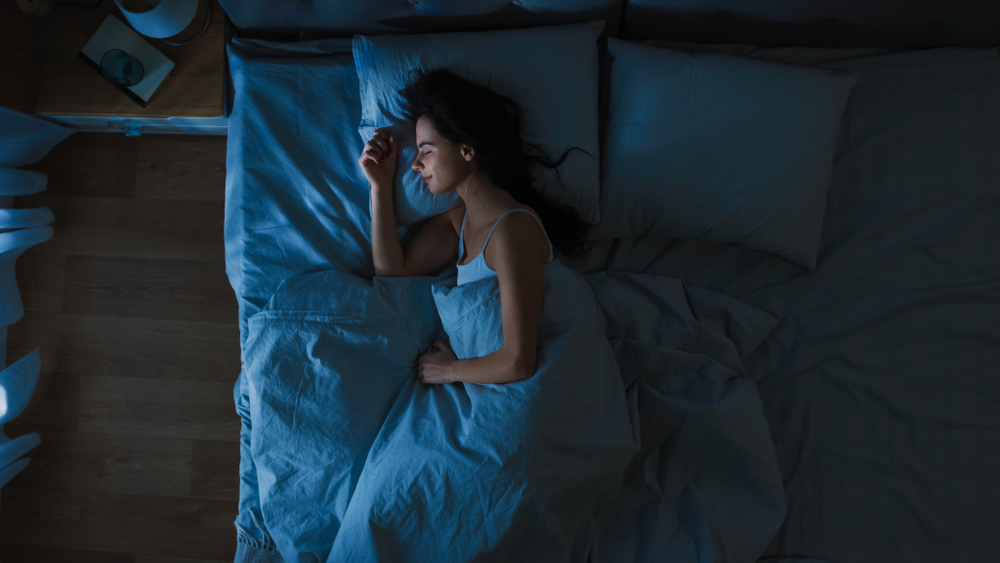
Can Kava Help With Poor Sleep Quality?
Kava is an excellent herbal supplement for supporting sleep — as you may have already discovered from the sections above. The main mechanism of kava is through its effects on GABA neurons in the brain — which are key regulators of the nervous system.
SupportingGABA has even been shown to enhance restorative (delta wave) sleep [6]. Several pharmaceutical companies have even designed drugs that target this effect with the specific goal of prolonging the duration of deep sleep.
We already know kava has a potent effect on GABA in the brain — but does this translate into improvements in delta wave activity while asleep?
Unsurprisingly, preliminary research suggests kava can directly increase the amount of time we spend in deep, delta-wave sleep.
One such study found a significant increase in delta activity during non-REM sleep [7]. This offers an explanation for how kava is so effective for promoting more restorative sleep. There’s a ton of anecdotal reports of people finding relief from sleep quality issues after using kava online.
The research in this area is promising, and the effects are impressive, to say the least. However, there are currently no clinical trials investigating this effect on humans. More research is needed to explore this effect to understand exactly how kava can improve delta activity in the brain and alleviate unrefreshed sleep insomnia.
Other Tips to Improve Unrefreshing Sleep
- Eat a meal containing complex carbohydrates and protein about 2 hours before going to sleep
- Follow a regular sleep pattern, going to sleep at the same time every day
- Visit a doctor to assess the underlying cause
- Take magnesium an hour before going to sleep
- Visit a sleep center to assess brain activity while asleep
- Ask your doctor or pharmacist to evaluate your medications to identify potential side-effects
- Meditate prior to going to sleep
- Exercise during the day
- Drink plenty of water during the day, but avoid too much water prior to bedtime
Tips On Using Kava
So you’ve decided to give kava a try to help with your sleep, but how do you actually use it?
While we already have guides on how to prepare kava and a quick reference guide to using kava — here are some of the most important things to understand at a glance before using kava for sleep.
How Much Kava Should I Use?
The ideal dose of kava can vary significantly from person to person — but the general rule of thumb is that you should opt for the higher end of the spectrum when it comes to sleep.
Lower doses of kava are less sedative than the higher doses — however, this can vary from person to person. If you’ve never used kava before, start with a low dose first to see how it affects you. If you feel comfortable, you can increase the dose each time until you get the effects you’re looking for.
Studies involving a standardized form of kava (WS 1490®) found dramatic improvements in sleep quality with around 140 mg of kavalactones — which equates to roughly 15 grams of kava powder on average.
If this dose doesn’t work for you, you may need a higher dose — or that the kava you’re using is on the weaker end of the spectrum.
It’s important to remember the potency of kavalactones in kava can vary from one product to the next — so always check the kavalactone content of the sample you’re using before you get started.
For more detailed information on dosing, check out our dosage guide.
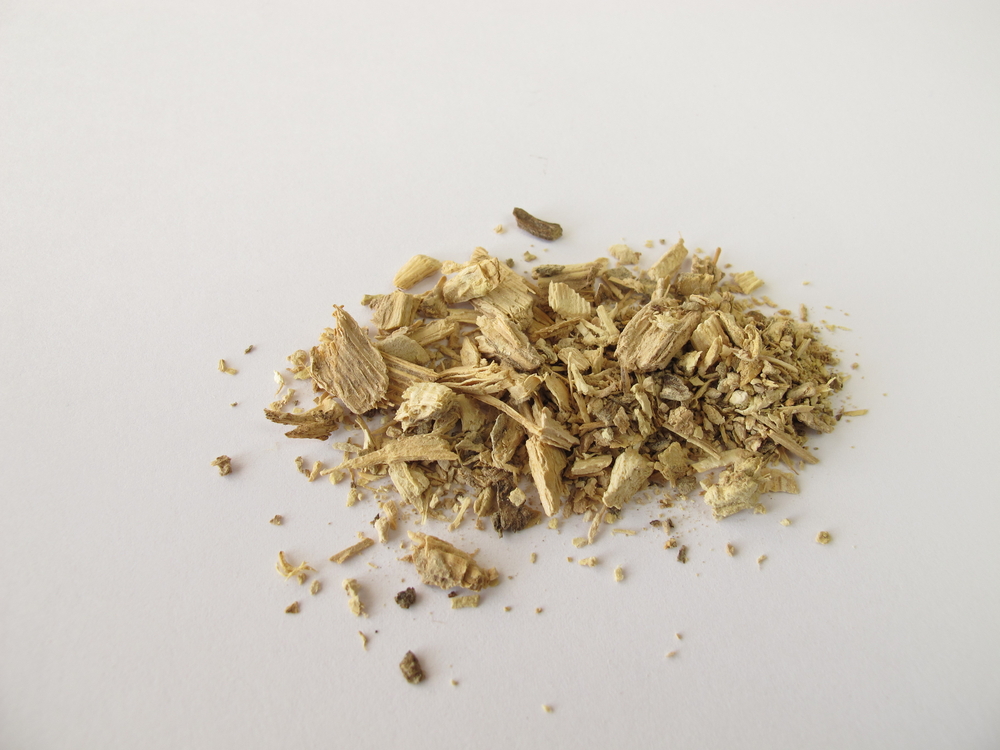
Does it Matter What Time I Drink Kava To Help With Sleep?
If your goal is to use kava for supporting sleep — it’s best to take your kava about an hour or so before your intended bedtime. This gives the active kavalactones enough time to enter the bloodstream and start exerting their effects.
It’s ideal to develop some sort of routine with your kava use to help condition your body for sleep mode.
Take some time preparing the kava mindfully, close your eyes and meditate for a while, dim the lights, and turn off outside sources of stimulation. Over time, your brain will begin to condition itself to the routine — leading to a natural reduction in cortisol and an increase in GABA activity — which is going to make the effects of kava even more effective.
The specific routine you choose to follow doesn’t matter as long as it’s virtually the same every time. If you follow the routine just before bed, the body will soon adapt to the cues and will begin initiating the process of winding down as soon as you start the routine.
What Kind of Kava Should I Use?
This is one of the most common questions we get asked. There are so many different kinds of kava on the market it can be hard to decide on a product.
This doesn’t need to be complicated — as all kava is going to have a similar effect on sleep. Some forms are simply stronger than others — which means you’ll need less to get the desired level of effects.
Look for kava capsules if you want the simplest method of consumption, and calculate your dose based on the number of kavalactones listed on the bottle. Most capsules contain between 50 and 100 mg per capsule, so you may need to take 2-4 of these capsules at a time.
We recommend using kava powder if you’re comfortable preparing the kava yourself. Powder offers the added layer of ritual to your kava consumption — which has a lot more benefits than you might think.
Is Kava Safe?
Kava is a safe supplement overall. There were early reports that kava can cause liver damage, but these findings have since been disproven. For more information on the safety of kava, check out our guide to kava risks and side effects.
Most Common Side-Effects of Kava
- Dilated pupils
- Fatigue
- Headaches
- Indigestion
- Lightheadedness
- Facial puffiness
- Visual disturbances
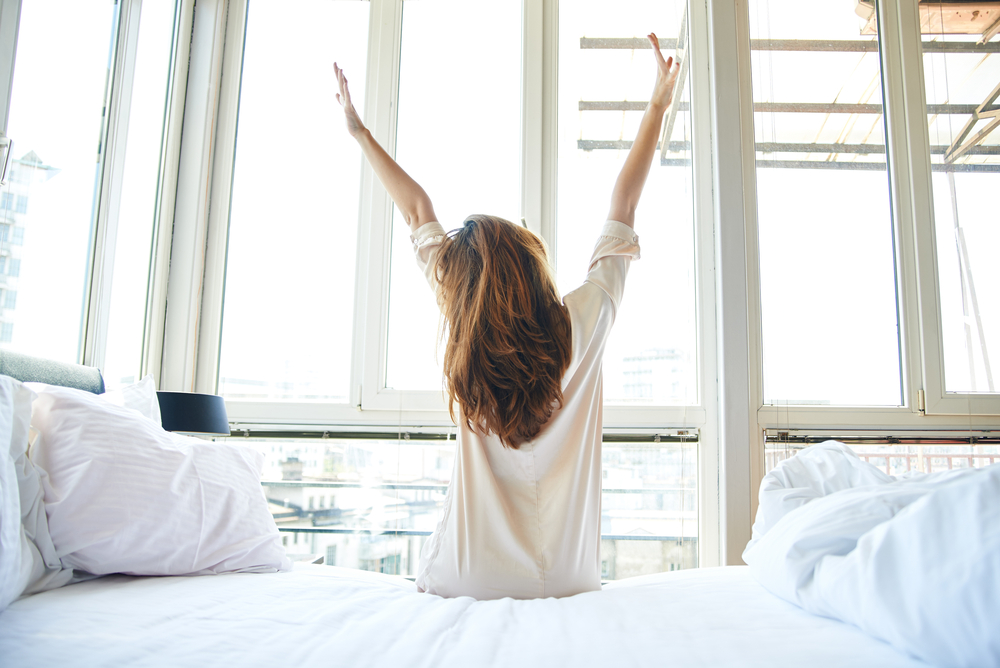
The Takeaway: Can Kava Help Me Sleep?
Kava is arguably one of the best herbal sedatives currently available. It works through the GABA receptors in the brain which are heavily involved with initiating and maintaining sleep.
Kava slows electrical activity in the brain to make us feel more relaxed and ready for bed. It’s been shown to offer the following support on the sleep process:
- Calms the mind to help you fall asleep
- Regulates the sleep cycle to keep you asleep for the entire night
- Improves sleep quality by lengthening the amount of time spent in deep sleep (delta waves)
It’s hard to deny the benefits kava has to offer in the process of sleep. But there are some limitations — so if you’re having trouble sleeping it’s important to see a doctor to rule out other underlying causes first.
The best way to use kava is to either take a capsule or drink kava tea for about an hour before bed. The effects of kava are even more effective if you put in some effort to practice good sleep hygiene as well. You can do this by taking the time to unwind at the end of the day, avoid screens or other stimuli an hour before bed, and stick to a routine.
If you’re interested in finding kava, have a look through some of our top-rated kava brands to get started.
Research Used to Make This Resource
- Lehrl, S. (2004). Clinical efficacy of kava extract WS® 1490 in sleep disturbances associated with anxiety disorders: Results of a multicenter, randomized, placebo-controlled, double-blind clinical trial. Journal of affective disorders, 78(2), 101-110.
- Tops, M., Van Peer, J. M., Korf, J., Wijers, A. A., & Tucker, D. M. (2007). Anxiety, cortisol, and attachment predict plasma oxytocin. Psychophysiology, 44(3), 444-449.
- Pollack, M. H., Jensen, J. E., Simon, N. M., Kaufman, R. E., & Renshaw, P. F. (2008). High-field MRS study of GABA, glutamate and glutamine in social anxiety disorder: response to treatment with levetiracetam. Progress in Neuro-Psychopharmacology and Biological Psychiatry, 32(3), 739-743.
- Jamieson, D. D., & Duffield, P. H. (1990). The antinociceptive actions of kava components in mice. Clinical and Experimental Pharmacology and Physiology, 17(7), 495-507.
- Kormann, E. C., de Aguiar Amaral, P., David, M., Eifler-Lima, V. L., Cechinel Filho, V., & de Campos Buzzi, F. (2012). Kavain analogues as potential analgesic agents. Pharmacological Reports, 64(6), 1419-1426.
- Bellesi, M., Riedner, B. A., Garcia-Molina, G. N., Cirelli, C., & Tononi, G. (2014). Enhancement of sleep slow waves: underlying mechanisms and practical consequences. Frontiers in systems neuroscience, 8, 208.
- Shinomiya, K., Inoue, T., Utsu, Y., Tokunaga, S., Masuoka, T., Ohmori, A., & Kamei, C. (2005). Effects of kava-kava extract on the sleep–wake cycle in sleep-disturbed rats. Psychopharmacology, 180(3), 564-569.
